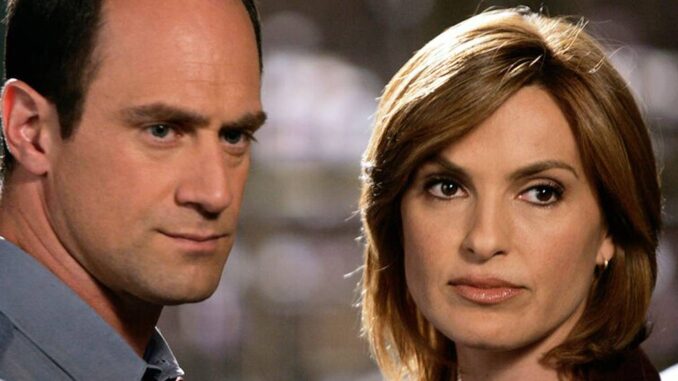
The Seeds of Stabler's Tumult: Benson and the Echoes of "Payback"
The first episode of "Law & Order: Special Victims Unit," titled "Payback," is more than just an introduction to the gritty world of sex crimes. It's a subtle but crucial blueprint for the complex and ultimately volatile partnership between Olivia Benson and Elliot Stabler. While the episode focuses on a harrowing rape case, it also subtly plants the seeds for Stabler's biggest problem: his inability to reconcile his fierce protective instincts with the nuanced realities of justice, a conflict tragically exacerbated and, in some ways, enabled by his relationship with Benson. Looking back, "Payback" wasn't just a case file; it was a prophecy.
The episode’s central conflict revolves around the horrific rape of a woman who subsequently kills her attacker. From the outset, Stabler's empathy is palpable. He's visibly disgusted by the crime and consumed by a desire to protect the victim. This is his defining characteristic, the engine driving his unwavering dedication to the SVU. Yet, his protective instincts, though admirable, are often fueled by a burning rage, a desire for immediate retribution that often bypasses the complexities of the legal system. We see this bubbling to the surface in "Payback," as he pushes for the victim's arrest despite recognizing the moral ambiguities of her actions.
Benson, on the other hand, while equally appalled by the crime, adopts a more measured approach. She recognizes the trauma the victim has endured and strives to understand the context of her actions. She pushes for a more compassionate understanding of the situation, advocating for the victim to be seen as a survivor, not just a perpetrator. This inherent difference in their approaches, highlighted so early in the series, becomes a recurring theme, shaping their interactions and influencing their individual paths.
It's here that the dynamic, and the seed of Stabler's future problems, truly takes root. Stabler, fiercely loyal and often driven by his emotions, implicitly relies on Benson to be his moral compass. He respects her perspective, even when it challenges his own ingrained biases. He listens to her, argues with her, and ultimately, often adjusts his perspective based on her influence. However, this dependence, this reliance on Benson's inherent empathy and level-headedness, unwittingly allows Stabler to avoid confronting the underlying anger and impulsivity that simmer within him.
In "Payback," we see glimpses of this reliance. Benson challenges Stabler's initial judgment, prompting him to consider the victim's perspective. She acts as a buffer, a sounding board, and ultimately, a voice of reason. While this collaboration often leads to successful outcomes, it also inadvertently allows Stabler to avoid fully processing his own internal conflicts. He relies on Benson to temper his rage, rather than developing his own mechanisms for dealing with it. This reliance becomes a crutch, preventing him from developing the emotional intelligence necessary to navigate the complexities of his job and his life.
This pattern continues throughout the series. Benson consistently acts as a counterweight to Stabler's intensity, providing a more nuanced perspective on the cases they encounter. She challenges his assumptions, confronts his biases, and reminds him of the importance of due process. This dynamic, while often beneficial, also inadvertently allows Stabler to remain somewhat shielded from the full consequences of his actions. He can afford to be more impulsive, more aggressive, knowing that Benson will be there to rein him in, to offer a different perspective, and ultimately, to mitigate the potential damage.
The tragedy, of course, is that this dynamic eventually implodes. When Stabler leaves SVU, the lack of Benson's moderating influence, combined with years of suppressed trauma and unchecked anger, leads to disastrous consequences. His explosive departure from the NYPD and the subsequent events in "Law & Order: Organized Crime" are, in many ways, the culmination of the seeds planted in "Payback." The reliance on Benson, the unspoken understanding that she would always be there to temper his intensity, ultimately left him unprepared to navigate the world without her.
In conclusion, "Payback" is more than just a compelling crime drama. It’s a microcosm of the complex relationship between Benson and Stabler, and a subtle foreshadowing of Stabler’s ultimate downfall. While Benson's presence undoubtedly helped Stabler navigate the treacherous landscape of SVU for many years, her role as his moral compass and emotional buffer inadvertently prevented him from confronting his own demons. The very first episode, with its emphasis on empathy, justice, and the delicate balance between the two, laid the foundation for a relationship that was both deeply meaningful and ultimately, tragically flawed, solidifying the idea that Benson's very presence was, in a way, the seed for Stabler's greatest challenge: controlling the storm within.
